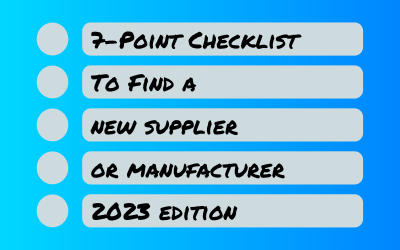The process of scaling up manufacturing is necessary for businesses to remain competitive in today’s market, but it’s not always an easy feat. Thankfully, with a little bit of forethought, enterprises can scale their manufacturing with fairly low risk by working in tandem with their manufacturing partners.
In this article, we will explore the why and how of scaling up a manufacturing process successfully from start to finish, and we’ll also highlight some of the things that businesses should be mindful of during this process.
Why is it important to scale up your manufacturing process?
While small-scale production can benefit from the ability to utilize flexible and customized production, many businesses have ambitions of continuous growth and more expansive operations.
At some point, your business may want to start ramping up its manufacturing processes to meet higher market demands. This will not only allow you to increase revenue but also to build a larger customer base, and it will also help build you a strong, positive reputation in the market.
How do you go about scaling up your manufacturing process?
While it doesn’t sound complicated initially, scaling up manufacturing is not always as straightforward as simply producing more products. To scale effectively there are a number of other considerations you’ll need to take into account such as equipment, recruitment, warehousing – all of which carry associated costs and risks.
Traditionally, building a manufacturing facility from scratch requires steep investment, but nowadays businesses can easily mitigate these costs by outsourcing to the right manufacturing partner. By doing so, you can not only save on time and construction costs, but also leverage some of the existing manufacturing expertise of your team.
Things to keep in mind when scaling up your manufacturing process
As you grow your business, one important thing to keep in mind is that the demand of the market is constantly fluctuating. To scale up successfully, businesses have to remain agile to capitalize on changing market trends, the shifts in the cost of raw materials as well as accurately gauge general interest in your business and your brand from customers.
Here are some of the things to keep in mind when choosing your manufacturing partner:
- Regionalization and Nearshoring
The desire for more regional manufacturing has been accelerated especially with the recent supply chain disruptions the world has been experiencing. By manufacturing closer to home, your products would reach the hands of your customers earlier and you will cut a lot of the costs associated with shipping.
Nearshore manufacturing is also generally better for the planet, as shorter logistical chains typically translate to a lower carbon footprint with products being more accessible and market ready.
- Quality Control of Products
When you are producing on a smaller scale, or working directly with customers on custom orders, it’s much easier to sieve out products with quality issues. However, that process becomes a lot more difficult as you start to ramp up the number of units being produced.
If the process isn’t efficient, products with quality issues may even end up being more costly for your business. The amount of money required to fix and re-work problems, deal with excess inventory not moving adds up, and the loss of sales involved isn’t insignificant. The whole process has the potential to really damage the reputation of your business and brand.
This is where a manufacturing partner with the right expertise comes in. With expert knowledge, a good vendor will assist you in forming sound manufacturing and quality check processes that will help reduce these quality assurance issues.
- Choosing the Right-sized Partner
When it comes to choosing a manufacturing partner, it is crucial to factor into consideration the volume of products you’re looking to manufacture.
There are two main reasons for this. Firstly, there is often a Minimum Order Quantity (MOQ) requirement imposed by the manufacturer. Secondly, you definitely want to receive the right level of attention and support from your selected vendor to avoid problems down the road.
The biggest supplier isn’t always the best. Imagine how much attention your manufacturer would give you if your business only accounted for less than 10% of their revenue. It is crucial to assess and review the level of capability your supply partners offer, and work out how that might affect the scalability and flexibility of your business. Understanding this will not just help your growth plans, but it’s also a great indication that you’ll be in a position that commands a lot of influence and negotiation power – all of which put you in the best position possible to drive your business forward.
Making the decision to scale up your manufacturing process
The benefits of scaling up the manufacturing process are evident in the greater economies of scale and lowered production costs you can expect from that growth.
Growing the scale of your business is never going to be a linear process. It is likely that you may need to adjust product levels constantly according to market demands, ramping up production or cooling off a bit in response to the ebb and flow of consumer demand. However you navigate this process, we highly recommend moving forward with a supportive manufacturing partner.
At Zipfox, our selected manufacturing partners are perfect candidates to help companies like yours reach their manufacturing goals. Click below to see how Zipfox can help you supercharge the growth of your business.











